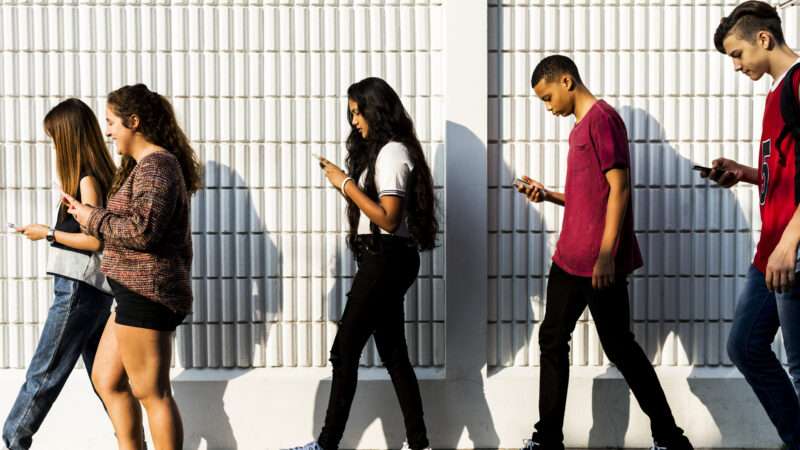
Last Wednesday, the Oceanside Unified School District in California filed a federal lawsuit against a spate of social media companies, targeting platforms like Instagram, Snapchat, TikTok, YouTube, and WhatsApp. The lawsuit claims that these platforms have created a mental health crisis among American youth and that this crisis has led school districts to pay for increased mental health services for their students. To the school district, this amounts to a violation of public nuisance law, negligence, and violations of several anti-racketeering laws.
"Defendants have successfully exploited the vulnerable brains of minors, causing millions of students across the United States, including in Plaintiffs' district, to become addicted to and excessively using Defendants' social media platforms," the 107-page complaint states. "Defendants' misconduct is a substantial factor resulting in a youth mental health crisis, which has been marked by increasingly higher proportions of minors struggling with anxiety, depression, thoughts of self-harm, and suicidal ideation."
According to the suit, the companies "intentionally created and maintained a public nuisance" by creating "youth oriented" platforms, designing these platforms to encourage prolonged use, and creating algorithms that "promote harmful, destructive content to be consumed by the user," among other allegations.
The lawsuit claims that these actions directly harmed the school district by "substantially and unreasonably [interfering] with public health, safety and the right to a public education in a safe and healthy environment," meaning that "the public nuisance created or maintained by Defendants was connected to Plaintiff's property, including but not limited to the school buildings."
Further, the complaint argues that social media platforms were negligent because they "knew or, in the exercise of reasonable care, should have known of the hazards and dangers of their respective social media platforms and specifically, the health hazards their platforms posed to youth in particular, especially prolonged use of such platforms where exposure to harmful content was reasonably foreseeable."
This isn't the first time a school district has attempted to sue social media companies over the apparently worsening mental health of its students. Earlier this year, Seattle Public Schools filed a similar lawsuit alleging that a range of social media companies—including Meta, YouTube, and Snapchat—violated Washington state's public nuisance law by enacting policies that supposedly contributed to the current mental health crisis among American teenagers.
However, both cases are unlikely to succeed. "The law really requires a high burden of proof demonstrating that causal relationship," Mark Bartholomew, a professor at the University at Buffalo School of Law who focuses on intellectual property and technology law, told the Los Angeles Times. "If you have a bunch of different potential causes, it's harder to sort out individual parties for responsibility."
However, even though lawsuits like these are likely doomed, school districts—along with state governments and even grieving parents—keep trying them. While the increased rates of depression and anxiety among American teenagers are certainly concerning, pinning the issue on one cause—social media platforms—isn't just overly simplistic, it's also inaccurate.
Much of the research claiming a causal link between mental health and social media use "treat individuals as faceless aggregations, which obscures the detail necessary to link complex phenomena like social media use and depression," Aaron Brown wrote for Reason last month. "It's good news that something as popular and cherished as social media is not clearly indicted as a destroyer of mental health…. We don't have to restrict social media for everyone based on statistical aggregations."
However, while the true causes of the decline in teen mental health are likely complex and multivariable, pinning the problem solely on social media—and the massive, faceless companies that control them—is a much easier narrative for the litigious to adopt.
The post California School District Sues Instagram, Snapchat, and TikTok for Creating 'Youth Mental Health Crisis' appeared first on Reason.com.

.jpg?w=600)





